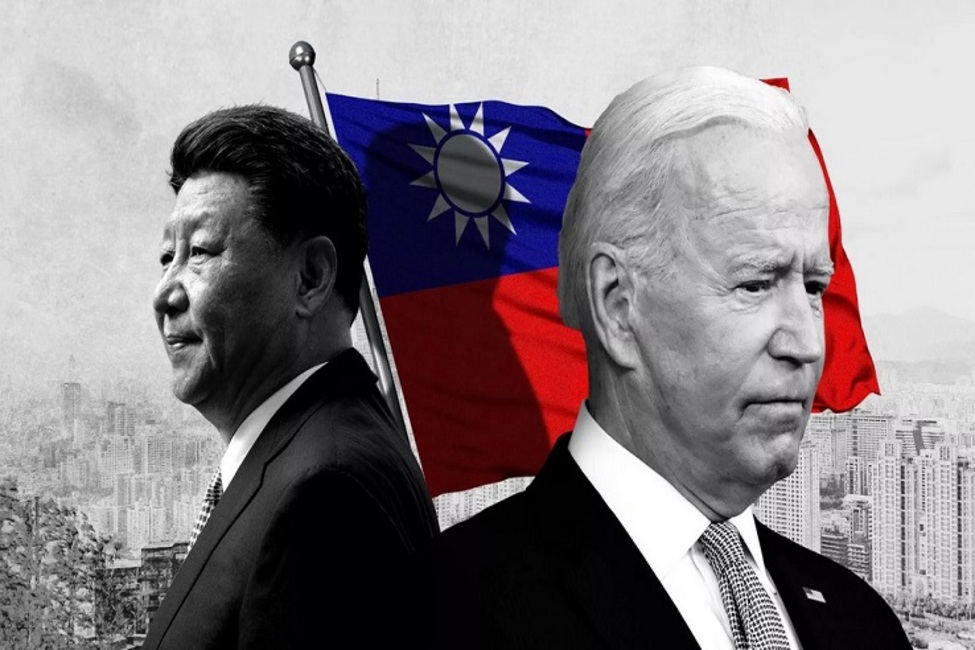Recent developments in the Taiwan Strait seem to have taken a different turn, and as the rivalry between China and the United States has grown, it has become one of the focal points of tension. The geographical location and sensitivities of the two sides make the situation in Taiwan to be considered as a sign of the weakness or strength of China and the United States, both militarily and in terms of promoting their good governance.
The starting point of the recent tensions can be seen in the telephone conversation between former US President Donald Trump and current Taiwanese President Tsai Ing-wen, which took place after Trump’s victory in the 2016 US presidential elections.
Meetings with some Taiwanese officials, arms sales, military maneuvers, and efforts to bring the country under UN auspices were all among the Trump administration’s measures and policies. The policies announced and implemented by the United States in the past year also show determination of the Biden administration to continue the policies of the previous administration.
Inviting Taiwan’s representative to the US to attend Joe Biden’s inauguration ceremony, approval of 700 million dollars in arms sales, meeting with officials, and inviting Taiwan to attend Democracy Summit, holding military exercises in Taiwan Strait, and announcing presence of the US military forces in Taiwan by the Taipei president are all part of the US efforts to strengthen bilateral relations with Taiwan.
Culmination of such approach was Biden’s announcement that the United States was ready to support the country in the event of a possible Chinese invasion; however, the White House later retreated in that issue. In addition to the bilateral relations, Biden’s United States is trying to make the partners and allies to accompany it in supporting Taiwan. The signing of the AUKUS treaty with Australia (which, given the supply of nuclear submarine, would make it more likely for Australia to be present in more remote areas, including the South China Sea), or the presence of a Canadian warship in the Taiwan Strait for the first time. Are among such measures.
But Beijing has not remained silent in response to such developments. Although Xi Jinping has emphasized the peaceful unification of Taiwan and the mainland, he has not ruled out a military option in this regard. In the first week of October, 150 Chinese warplanes entered the Taiwan Air Defense Reconnaissance Zone. Although surveillance aircraft used more commonly in the past, the balance is now in favor of fighter jets.
The use of nuclear-capable bombers has also increased. Of course, China’s military readiness is not limited to maneuvering and displaying power. For example, according to the Taiwan Ministry of Defense, the Chinese military has developed the ability to disrupt communications around Taiwan, which could disrupt military cooperation between Taipei and Washington.
In general, it is worth mentioning a few points regarding China’s position that indicate its military readiness:
First, although Beijing ultimately wants to unite Taiwan with mainland China, it does not seem to be willing to do so at the moment through military action. The most important evidence of this claim could be that despite deployment of the fighters to the Air Defense Reconnaissance Area, they did not enter Taiwan’s airspace. However, from a theoretical point of view, if the pressure intensifies and the perception is created that Beijing is under siege, the possibility of resorting to a military option by China may also take shape.
Second, Beijing is proving its seriousness to the other side by demonstrating its readiness for military action. By doing so, the Chinese are exposing a shift in military balance from the past decades to the United States. This show of strength, in turn, demonstrates the extent of US determination to support Taiwan. And the third point is that China can influence Taiwan’s public opinion through this measure and showing the tense atmosphere of relations with Taiwan, thereby changing the future choices of the people. The Taiwanese nationalists, who have ruled Taiwan for decades, unlike Tsai Ingo-wen’s party, pursued a policy of reconciliation with the mainland rather than independence.
In general, the above evidence shows that China has moved away from the policy of ambiguity that has characterized its decades-long relationship with Taiwan. If Beijing used to emphasize economic interaction with Taiwan and peaceful unity, now its declared policies and actions show the country’s seriousness in dealing with Taiwan. This development increases the risk of miscalculation and, consequently, a military confrontation with the United States; even though, there is no desire for such an event to occur.










0 Comments